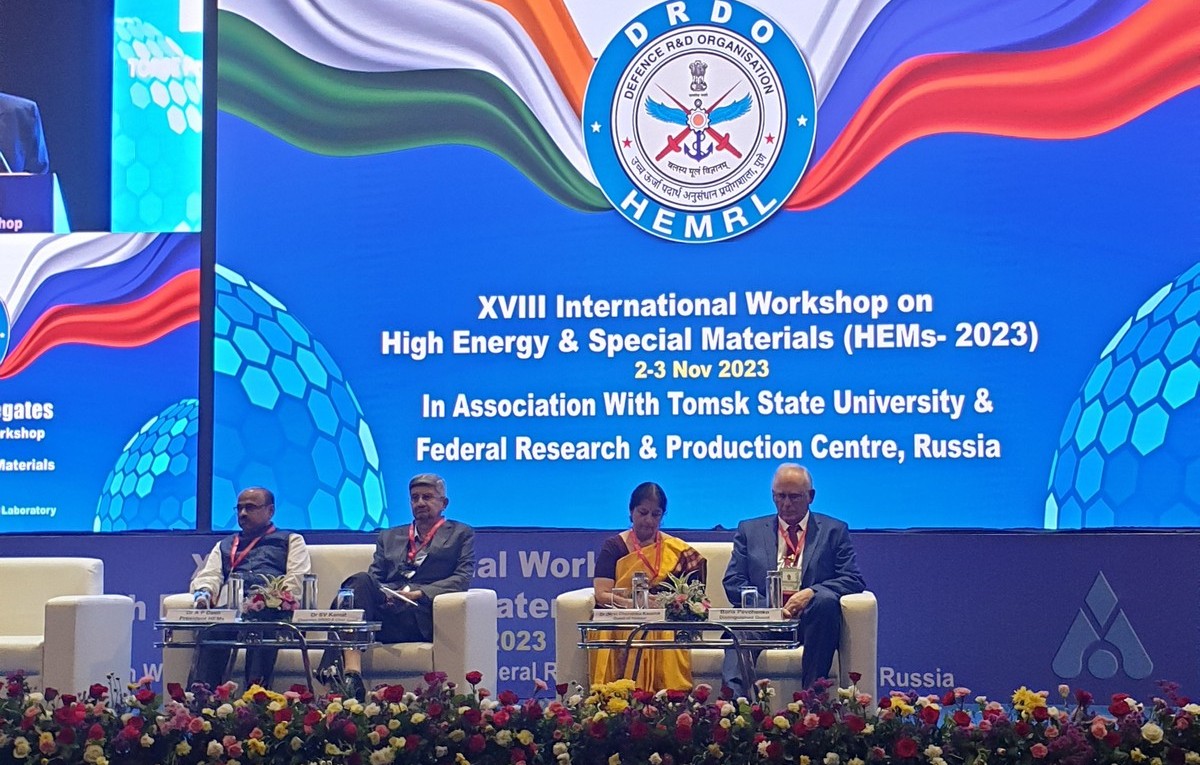Over 200 people participated in the International Workshop on High Energy and Special Materials (HEMs-2023) held at the High Energy Materials Research Laboratory (HEMRL) in India. Scientists exchanged their experience in the field of high-energy and specialty metallic and composite materials. The workshop was organized by Tomsk State University, HEMRL, and JSC Federal Research & Production Center Altai. The event was held under the support of the federal program Priority 2030.
The participants of the workshop were specialists studying the development of high-energy and special materials, as well as experts from various countries. Russia was represented by scientists from Tomsk, Biysk, Novosibirsk, Omsk, Moscow, and Chernogolovka.
"HEMs is a unique platform that promotes international collaboration. During the roundtable new directions of bilateral collaboration in the scientific sphere were outlined," said Marina Khmeleva, conference secretary, senior researcher in the Laboratory of Metallurgy Nanotechnologies of TSU. "The potential of mutually beneficial scientific collaboration should be increased, particularly through the implementation of joint research projects in areas of mutual interest."
TSU employees presented more than 10 projects in the field of energy and new materials. Dmitry Tkachev, junior researcher of the Laboratory of Metallurgy Nanotechnologies, spoke about developments in antifriction coatings with increased hardness, obtaining powder materials of a given dispersion, and 3D printing of products using them. The laboratory research presented results on the effect of nanoparticles on aluminum alloys.

Photo courtesy of the conference organizers
Of particular interest were the reports presented by Gulsharat Baigonakova, senior researcher in the Laboratory of Superelastic Biointerfaces, on the creation of biocompatible corrosion-resistant protective coatings for medical alloys, and Elizaveta Pikuschak, senior researcher in the Laboratory of Metallurgy Nanotechnologies, on creating water-based antimicrobial paint with Janus-like ZnO/Ag nanoparticles to control the spread of microorganisms and viruses, including the SARS-CoV-2 virus. The poster by Viktor Klimenko, senior researcher in the Innovative Programs and Projects Department of TSU Scientific Department, on bactericidal activity of iodine-containing nanothermites was awarded for the best poster report.
Olga Min, director of the Language Support Center of the TSU International Division, noted that the strongest scientific teams of Indian universities are ready to expand cooperation with TSU faculties, in particular, to organize student and academic staff exchange and to implement joint projects in educational and scientific fields.
The parties agreed to hold a number of specialized meetings for more substantive discussion of the current situation.






